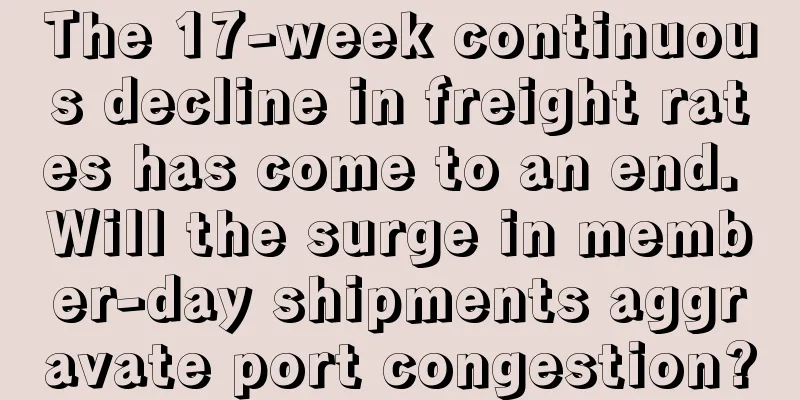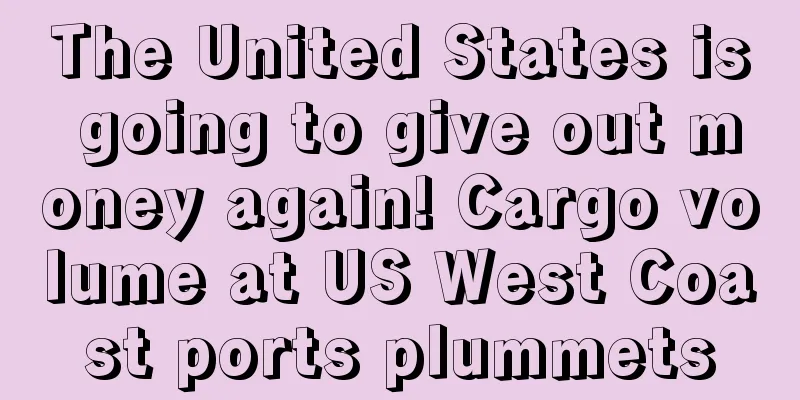The 17-week continuous decline in freight rates has come to an end. Will the surge in member-day shipments aggravate port congestion?

|
Even so, international freight rates are still far from returning to pre-epidemic levels, and this situation will soon cease to exist. Last Friday, freight rates began to rise again .
It was observed that all major shipping indices rebounded in the latest period: the FBX global comprehensive average index rose by 3%, especially on the US West Coast route , the freight rate index rebounded sharply, up 9% , and the US East Coast, Europe and Mediterranean routes also rose slightly; the WCI major route indices remained stable; the domestic SCFI and NCFI indices also stopped falling and rebounded. ▲ The picture comes from Shanghai Shipping Trading Network
1. Shanghai is about to resume work, and a wave of retaliatory shipments is coming
On May 19, the Shanghai Municipal Government Information Office held the 188th press conference on the prevention and control of the COVID-19 epidemic in Shanghai. Deputy Mayor Zhang Wei emphasized that with the continuous improvement of the epidemic prevention and control situation, the city's production and living order is recovering in an orderly manner. Starting from early June, according to the city's epidemic prevention and control situation, the resumption of work and production will be accelerated and the resumption of work of enterprises will be continuously expanded.
Due to the epidemic lockdown, more than 260,000 TEUs of export goods were not shipped from Shanghai in April , which is equivalent to 26 ships fully loaded with 10,000 TEUs. With the launch of Shanghai's unblocking policy, the recovery of shipping capacity and the third quarter being the traditional peak season for shipping will lead to a wave of rush to ship goods, resulting in a shortage of containers and rising freight rates.
2. Labor negotiations between the US and Spain are suspended, which may be a precursor to a strike
According to foreign media reports, negotiations between dockworkers and employers in the western United States seem to be going poorly. Recently, the ILWU, which represents the labor side, has requested for the first time to suspend negotiations until June 1. If approved, the suspension will start on Friday. The union did not respond to this move, and the specific reason is still unknown.
▲ Image from JOC.com
|
<<: Tens of times the premium! "KFC Pikachu" becomes the new hot item in the e-commerce circle?
Recommend
Amazon Advertising has been updated again! Sellers must read these two new features!
Recently, Amazon Advertising introduced two new fe...
The peak season sales in the second half of the year are about to begin. How can sellers of this popular category unlock the secret to explosive sales?
In the past two decades, thanks to the strong supp...
Second-hand e-commerce layout offline entity! Mercari will launch its first pop-up store
It is learned that according to foreign media repo...
Black technology avoids Amazon's scrutiny?! Price fraud is no longer a big deal
During the epidemic, sellers of masks and other ep...
What is Entri? Entri Review
Entri was founded in 2017. It provides competitive...
What is Remix? Remix Review
Founded in 2012, Remix is one of Europe's le...
Walmart adds InHome grocery delivery service as Walmart+ add-on service!
<span data-docs-delta="[[20,"获悉,沃尔玛今天宣布,其I...
Amazon launches new website to fight back against US antitrust law
Amazon launched a website on Friday to seek suppor...
The new male operator made a bet with me that the white hat operator would not open ads and BS, and he lost and asked me to be his girlfriend! I have been an operator for 2 years and I don’t know how to do it. Zhiwu God, please save me!
Anonymous user My C position A while ago, a male o...
D2C wine market boom is coming! US wine D2C sales increased by 18%!
It is learned that according to foreign media repo...
Sales in the first quarter increased by 48%! The lipstick consumption craze in the United States is back
It is learned that according to the latest researc...
What is Meihuan International Warehousing and Logistics? Meihuan International Warehousing and Logistics Review
Meihuan (Shanghai) E-commerce Co., Ltd. is a servi...
Amazon Handmade is a big hit in Mexico! It will open a "Made in Mexico" store
<span data-shimo-docs="[[20,"获悉,日前亚马逊旗下手工艺...
How strong is the "lipstick effect" in the United States under high inflation? Retailers: Q2 is all supported by beauty products!
<span data-docs-delta="[[20,"获悉,高通胀使美国消费者减...
What is Visual Marketing Index? Visual Marketing Index Review
Visual Marketing index is a unique tool for managi...









